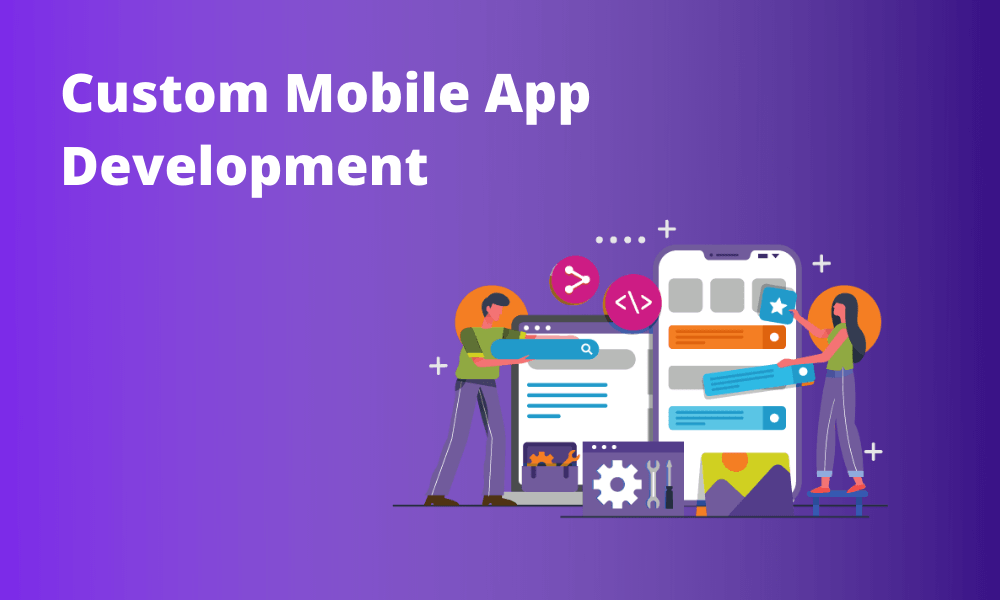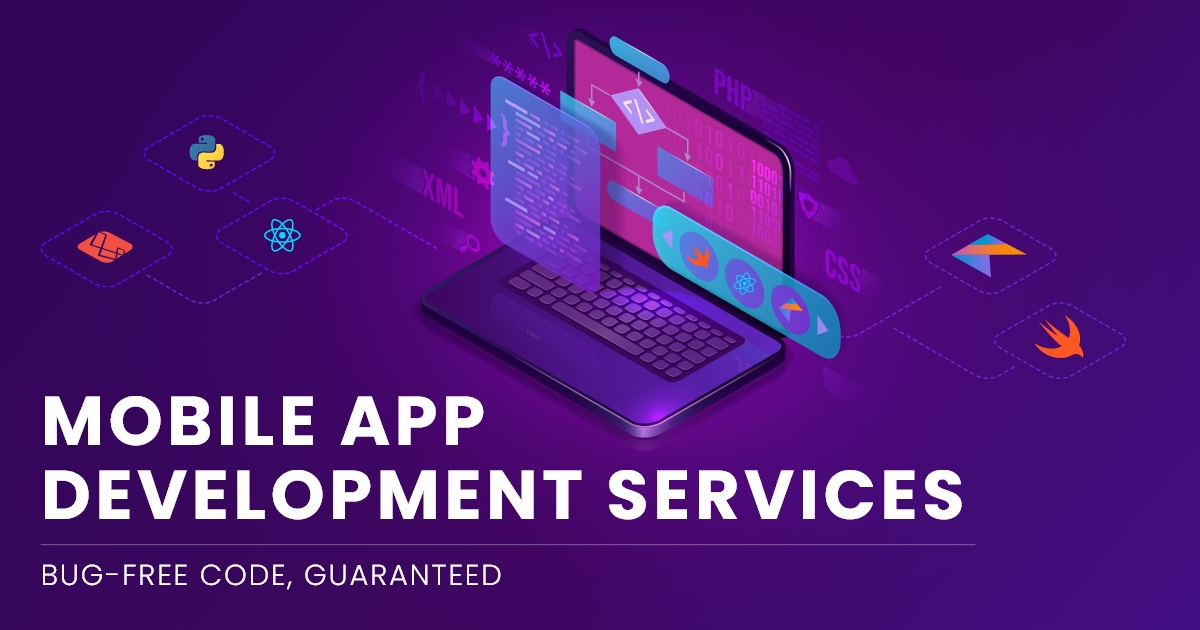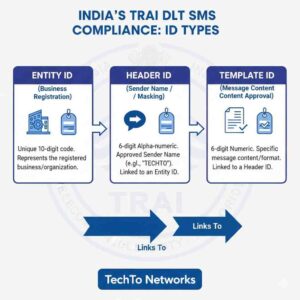
Let’s start straight — when someone says “custom mobile app development,” what they really mean is building an app from the ground up, tailored to your business needs, instead of using a one-size-fits-all template. It’s more work. More cost. But often, more payoff. And when you’re looking at mobile app development services, the difference shows in how aligned your app is with your real operations, your customers, and your future plans.
Why does this matter? The global mobile app development market was valued at about USD 195.7 billion in 2023 and projected to reach USD 606 billion by 2032, with a compound annual growth rate (CAGR) of roughly 13.1%. So there’s serious scale, competition, and opportunity. If you’re going to play in this space, you need more than just a “good enough” app.
Why businesses are opting for custom mobile app development
Here’s the truth: off-the-shelf apps can get a job done for simple needs. But if you want to stand out, solve a unique pain point, scale intelligently, or integrate deeply with your systems, you need custom mobile app development. Custom means you’re not shoe-horning your processes into someone else’s paradigm. You’re shaping the app around your advantage.
For example, say you run field service operations in India. You might need offline capabilities, GPS and routing, local language support, integration with local payment gateways, maybe even rugged devices. A generic app likely won’t hit all those. A custom built one will.
What “mobile app development services” really cover
When I say mobile app development services, I mean the full suite: ideation, design, architecture, coding (native, hybrid, or cross-platform), testing, deployment, maintenance. Many companies think app development ends when you hit “publish”. That’s wrong. Ongoing updates, security patches, performance tuning—all of that counts.
And let’s not forget: mobile app development services should also include strategy—market fit, user experience (UX), app store optimisation (ASO), analytics and user feedback loops. Without strategy, you may build something that works technically, but doesn’t move your business needle.
The cost-versus-value equation for custom apps
If someone tells you they’ll build a custom mobile app for a pittance, be careful. There’s no magic. Custom development involves people hours, architecture decisions, device & OS compatibility, security, integrations. That’s why the market forecasts show heavy growth: the demand is up. According to one report, the mobile app development market was valued at USD 269.49 billion in 2024 and projected to grow to USD 753.34 billion by 2033.
What you’re paying for: flexibility, future-proofing, differentiation. If you just need a simple app and you’re okay with compromises, perhaps a lighter solution is fine. But if your business wants control, ownership, and strategic advantage, custom demands.
Key considerations when selecting a mobile app development partner
Don’t just pick the cheapest. Ask these things:
-
What’s their experience in your industry?
-
What platforms do they support (iOS, Android, web)?
-
Are they experienced in both native and cross-platform solutions?
-
How do they handle backend integration, security, performance, scalability?
-
What post-launch services do they offer—updates, monitoring, analytics?
-
How well will they help you define your strategy, not just build the code?
Because you want mobile app development services that aren’t just transactional. You want a collaborative relationship.
Choosing between native vs hybrid vs cross-platform
This is one of the big architectural decisions in mobile app development services. Native (Swift/Kotlin) can give you best performance and user experience, but cost more because you’re effectively building two apps (iOS + Android). Hybrid or cross-platform (Flutter, React Native) can save effort, speed and cost, but may have trade-offs in some advanced performance areas.
In 2025, mobile app usage and expectations are high. For instance, users spend an average of 3.5 hours per day on mobile apps. Performance counts. So pick the platform that aligns with your goals—if the experience is core to your business, invest in native. If you need faster rollout across platforms and can accept small trade-offs, hybrid may be fine.
Building for growth: scalability in custom mobile app development
Let’s say you build an app and it works well. But a few months later, you have 100x the users, or you want to add AI, AR/VR, IoT integrations. Will your app crash, struggle, require complete rebuild? That’s where a scalable architecture in your custom mobile app development comes in.
According to research, the mobile application development platform market (a subset of the services and tools underpinning apps) is projected to reach USD 480.58 billion by 2030, growing at a 14.56% CAGR. So the tools are evolving fast—choose service providers who keep up and build with flexibility in mind.
The role of UX/UI and user-centric mobile app development services
This might sound obvious but it’s often ignored: if the app is clunky, slow, confusing, users will abandon it. Custom development gives you the chance to craft the UX to match your audience—not generic UI. You can localise languages, address regional behaviours, design flows that make sense for your region.
Even globally, the data shows a rising expectation: mobile app users are used to polished, fast, intuitive experiences. If you deliver anything less, you’ll struggle with retention. So make sure your mobile app development services include strong UX/UI design, user testing, and feedback cycles.
Integrations, data and security: must-haves in custom mobile apps
Any app worth its salt now must link into your data systems (CRM, ERP, backend services) or integrate with third-party APIs (payments, mapping, analytics). If you skip that, you’ll end up with an island app. Worse, you’ll have to re-engineer later.
And then there’s security. With a custom mobile app, you’re responsible for architecture, data flows, encryption, user authentication, and compliance. Especially if you work in regulated industries (healthcare, finance). A good mobile app development service will help you build secure, robust systems—not just apps that look nice.
Maintenance, updates and long-term mobile app development services
Here’s the reality: the job doesn’t end at launch. Custom mobile app development comes with ongoing costs: OS upgrades, device fragmentation, bug fixes, feature enhancements, changing user expectations. If your development partner treats you like a one-off, you’ll regret it.
Make sure you budget for maintenance. And make sure your partner offers a support and update plan. Because the mobile world moves fast. For instance: the mobile application market is expected to exceed USD 1 trillion by 2034. If you want to stay relevant, you must keep evolving.
Measuring success: KPIs for custom apps and mobile app development services
You built the app—now how do you know it’s working? Some key metrics to track: number of downloads, active users (daily/weekly), session length, retention rate, churn rate, user acquisition cost, user lifetime value, and for business apps: how much time/money you save your business or generate revenue.
Work with your mobile app development services provider to set these KPIs early. Without them, you’ll be flying blind. And if you don’t measure, you can’t improve.
Making the decision: is custom mobile app development right for you?
Let’s wrap it up. If your business has unique workflows or competitive differentiation, wants control, plans to scale, and cares about long-term value, then yes—custom mobile app development is likely the right route. If you have a very simple need, limited budget, and the app isn’t central to your business strategy, then maybe a lighter solution or template might work.
But here’s the kicker: even if you go lighter now, think ahead. You might need to transition to custom later. That transition can cost more than just doing custom from the start.
If you’re serious — pick a partner who understands your business, knows mobile inside-out, offers full mobile app development services and will stick with you after launch.
Conclusion & Next Steps
So there you have it — the straight talk on custom mobile app development and mobile app development services. It’s not glam-marketing. It’s real work. But done right, it’s strategic value.
If you’d like to explore how to build a high-impact custom mobile app tailored to your business, talk to LBM Solution. They specialise in mobile app development services that align with real business outcomes. Reach out today and start turning your idea into a real advantage.
FAQs
Q1: What’s the difference between custom mobile app development and off-the-shelf mobile apps?
Custom mobile app development means building from scratch (or heavily customised) to fit your specific business needs, workflows, and future growth. Off-the-shelf is template-based, less flexible and may force you into constraints.
Q2: How much does custom mobile app development cost?
It varies—depends on platform (iOS/Android), complexity, integrations, design, maintenance. Because the global development market is large and growing (see USD 195.7 billion in 2023) the cost is significant, but you pay for value, not just code.
Q3: Which mobile platforms should we build for?
Typically iOS and Android. If budget is tight you might start with one, but consider cross-platform/hybrid frameworks for quicker rollouts. But if performance and UX matter a lot, native might be the way.
Q4: How long does custom mobile app development take?
Depends on scope. From a few months for a simple app to a year+ for complex, enterprise-level custom mobile apps with multiple integrations. Plus ongoing maintenance.
Q5: How do we pick the right mobile app development services partner?
Look for experience in your industry, cross-platform expertise, strong UX/UI capability, backend/data integration skills, and support services post-launch. Ask for references and check their long-term engagement model.
If you’re ready to move beyond “maybe we build an app” to “we have an app that drives our business”, let’s talk. Reach out to LBM Solution and get the mobile advantage you deserve.




